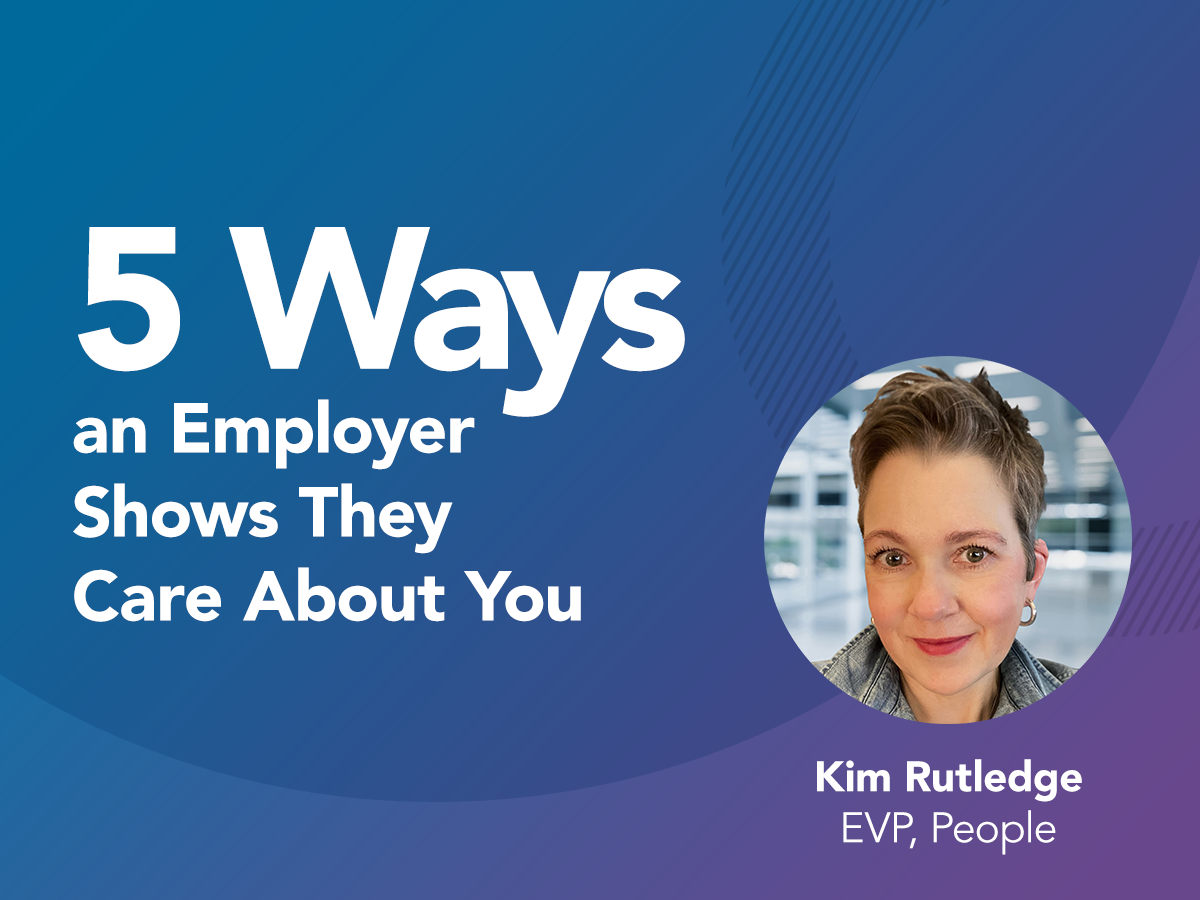By Kim Rutledge, EVP People at Q2
In the early days of the pandemic, people thought things would return to normal in life — and at work — quickly. But it hasn't worked out that way. The realities of Covid-19 have led people to decide that they don't want to spend their lives in jobs they hate – or even jobs that don’t provide them with personal meaning, and they're leaving in droves. In what has been called the Great Resignation, 11.5 million people left jobs between April and June. By the end of July, job openings in the U.S. hit a record high — 10.9 million — for the fifth straight month.
The result is an extremely competitive job market where employees hold the cards.
If you’re among the millions being courted for a new role, I encourage you to look for an employer that will help you achieve your personal and professional growth goals. A job is so much more than a paycheck, and considering all aspects of its impact on your life will lead to a much better decision.
Here are five things to look for that show that an employer cares about you.
1. They meet you where you are — literally
The pandemic has taught us that remote work isn’t just possible, it can be ideal for employees and employers alike. Companies should be meeting people who want or need to work remotely where they are and finding ways to help them succeed in this environment. Of course, there are times when being in person may be required or desired, but it’s critical for companies to re-evaluate the reasons for those meetings instead of assuming that those reasons haven’t changed over the last 18 months.
At Q2, our approach has been to provide the greatest amount of flexibility possible to allow each employee to access our resources in a way that makes sense for them. If having the option to work from home – or just to work at the office on your schedule - is important to you, you’ll want to find a company that takes a similar approach and gives their employees what they need to thrive.
2. They value their people
I don't know how a company excels — or even exists — in 2021 without a people-centric approach. At Q2, our value comes from our employees. They create the ideas. They develop the software. They understand our customers' needs. If we didn’t take care of our people, what would be their motivation to do what they do?
Leadership teams need to recognize that employees don't have to be there. If they’re unable (or unwilling) to demonstrate appreciation for your contributions, you should consider moving on.
3. They make personal connections
For me, one of the biggest surprises of the pandemic is the way it’s brought us closer to the people with whom we regularly interact with. There's a new level of intimacy between us as humans as well as teammates. I now know whether an employee’s dog is likely to bark or what time of day their significant other grabs something to drink out of the refrigerator. I know who's got guitars on their walls and who's got a bike in the corner.
Ironically, we may know each other better now than when we worked side by side. This level of intimacy fosters a culture of collaboration and compassion. So, find a company that’s interested in you as a person, not just as a cog. Long after the pandemic’s over, you want to be with an organization that cares about you, your children — and your dog.
4. They’re committed to transparency
You should be able to count on an employer to provide you with a transparent statement about the role and the employer’s expectations. Don’t shy away from sharing your needs with an employer. Whatever is important to you — to not come into the office until 10:00 a.m., to have every Thursday afternoon off, to work exclusively from home — you should feel comfortable communicating these needs to a potential employer, and they should be transparent about their expectations.
The world has changed, and many employers are much more willing to have these frank conversations. You should be, too.
5. They create a supportive and inclusive culture
I’m lucky to work with a CEO and executive team that doesn't just know the words they should say — they believe them. This idea of leaders walking the walk is the foundation of Q2’s culture, and it should be at other companies, too.
Look for a company where the CEO has demonstrated a significant amount of care for their employees. Although the CEO is just one person, they set the tone. Look around and see how employees are treated when asking yourself, “Is this the right place for me?”
Workplace culture should also be diverse. Many of Q2’s early employees came from financial services, but over the years we've recruited people from all kinds of industries, backgrounds, companies and countries — all of which has enriched the culture.
Finally, workplace culture should also be supportive. Our CEO encourages people to try things, even if it means making mistakes along the way. He wants employees to know it's okay to take a chance on something new and different in the interest of helping our customers in the best possible way.
This kind of support gives you the freedom to make decisions without fear of punishment. When you’re given the green light to take chances and make mistakes, you can work in a way that serves your organization while also nourishing your spirit.
The pandemic has created a tremendous opportunity for us to think differently about what we want from our workplace. We can all become disruptors of sorts, reimagining and rebuilding our careers in ways we never thought possible. The first step is to identify what’s important to you.
And don’t settle for less.
To learn more about Q2’s culture and open opportunities, check out our People page.




